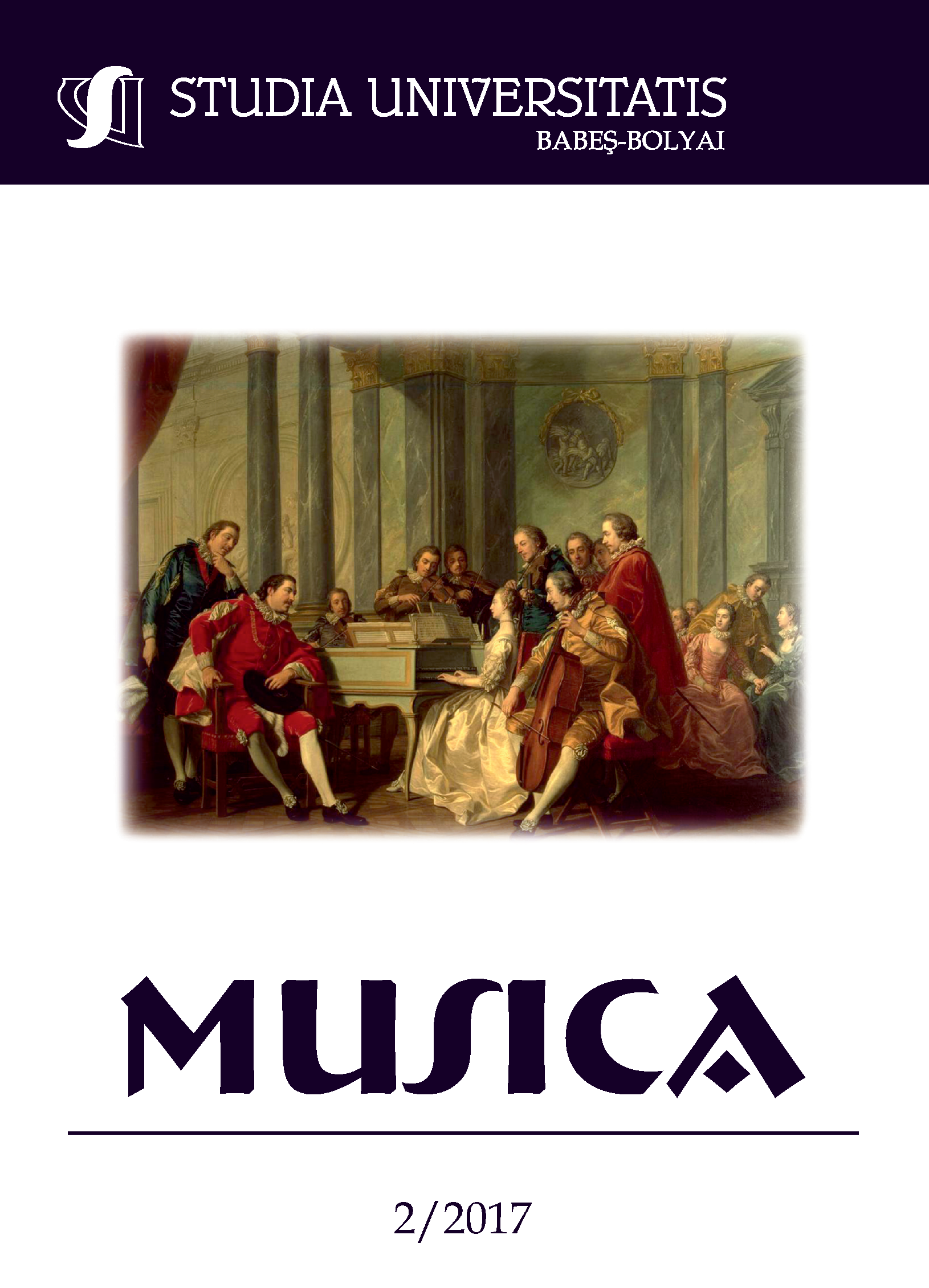A SURVEY AND COMPARATIVE ANALYSIS OF SELECTED PIANO METHOD BOOKS
DOI:
https://doi.org/10.24193/subbmusica.2017.2.08Keywords:
piano method book, skill/talent development, piano pedagogy.Abstract
The first several years of instrumental study are crucial in the formation of one’s fundamental attitude toward music. The manner in which a child is taught and the goals set by the teacher during this period can shape his/her relationship to music for a lifetime. So-called piano method books are widely used in the earliest stages of study. The increased popularity of piano lessons has made this activity an important venue for learning about music in general, not only for the musically gifted, but also for children of average ability. In this sense, the chosen pedagogical approach and teaching tools – including method books – greatly influence students, piano teachers, and parents. Thus, an examination and comparison of the developmental strategies found in various piano method books is paramount. The results of this exploratory research, a comparative analysis of six different Hungarian piano method books, may bear potentially significant implications from a wider, international perspective. Moreover, the selected analytical criteria used here offer a basis for further research of piano method books and pedagogical styles.References
Báthory, Zoltán & Falus, Iván, Pedagógiai Lexikon [Encyclopedia of Pedagogy] Vol. II. Budapest: Keraban Könyvkiadó, 1997.
Czövek, Erna, “Korszerű zongoraiskola tervezete” [Outline of an Innovative Piano Method] in: Parlando 1963/3, 7-10; 1963/4, 9-12
Dobszay, László, Magyar zenetörténet [Hungarian Music History] Budapest: Gondolat Kiadó, 1984.
Duffek, Mihály, Zongora szakmódszertan személyes hangolásban [Piano Methodology – Personally Tuned] Debrecen: Egyetemi Kiadó, 2015.
Nagy, József, Krisztián Józsa, Tibor Vidákovich, and Margit Fazekasné Fenyvesi, Az alapkészségek fejlődése 4-8 éves életkorban [Development of Rudimentary Skills from Ages 4-8] Budapest: OKÉV, KÁOKSZI, 2002.
Nagy, Sándor, Az oktatás folyamata és módszerei [The Process and Methods of Education] Mogyoród: Volos Kiadó, 1997.
Pukánszky, Béla, “Metodikai áttekintés az utóbbi száz év kiemelkedő gordonkaiskoláiról” [A Methodological Review of the Foremost Cello Methods of the Last 100 Years] in: Parlando 1978/9, 6
Szabolcsi, Bence & Tóth, Aladár (Ed. Dénes Bartha). Zenei lexikon [Encyclopedia of Music], Vol. III. (O–Z) Budapest: Zeneműkiadó, 1965.
Szávai, Magda. “Előszó helyett – Zeneiskoláink történetének vázlata” [In Lieu of a Preface – An Outline of the History of Our Music Schools] in: Veszprémi, Lili. Zongoraoktatásunk története, 1976.
Veszprémi, Lili, Zongoraoktatásunk története [A History of Our Piano Pedagogy] Budapest: Zeneműkiadó, 1976.
Zakárné Horváth, Ida. Készségek, képességek, kompetenciák fejlesztése [The Development of Skills, Talents, and Competencies] Budapest: MODINFO Kft, 2003.
“Zongora” [Piano], curriculum guidelines for elementary arts education, in: Magyar Közlöny 2011/8, 1168-71.
Other Piano Method Books:
Bartalus, István, Módszer a zongora helyes játszására [Proper Method for Playing the Piano] Pest, 1860.
Chován, Kálmán, A zongorajáték módszertana mint nevelési eszköz [Piano Methodology as a Means of Education] Budapest: Rozsnyai, n.d. 1904.
Couperin, François, L’art de toucher le clavecin [The Art of Playing the Harpsichord] Paris, 1716.
Gáti, István, A kótából való klavírozás mestersége, mellyet készített az abban gyönyörködők kedvéért [The Art of Keyboard Playing from Sheet Music, Created for the Delight of Music Lovers] Buda: A Királyi Universitásnak Betűivel, 1802.
Schaum, John W., Wir musizieren am Klavier [We Play the Piano] Berlin: Bosworth Verlag, 2002.
Thompson, John, John Thompson’s Easiest Piano Course, Part One, London: Chappell & Co. Ltd, 1955.
Türk, Daniel Gottlob, Klavierschule oder Anweisung zum Klavierspielen [Piano School or Instruction for Piano Playing] Leipzig, 1789.
Wohlmuth, János, Starck Virginal Book, Sopron, MS, 1689. First, critical edition: Musicalia Danubiana 22. Starck Virginal Book (1689) Compiled by Johann Wohlmuth; Johann Wohlmuth: Miserere (1696). Ed. Ilona Ferenczi. Budapest: MTA Zenetudományi Intézet, 2008.
Downloads
Published
How to Cite
Issue
Section
License
Copyright (c) 2017 Studia Universitatis Babeș-Bolyai Musica

This work is licensed under a Creative Commons Attribution-NonCommercial-NoDerivatives 4.0 International License.






